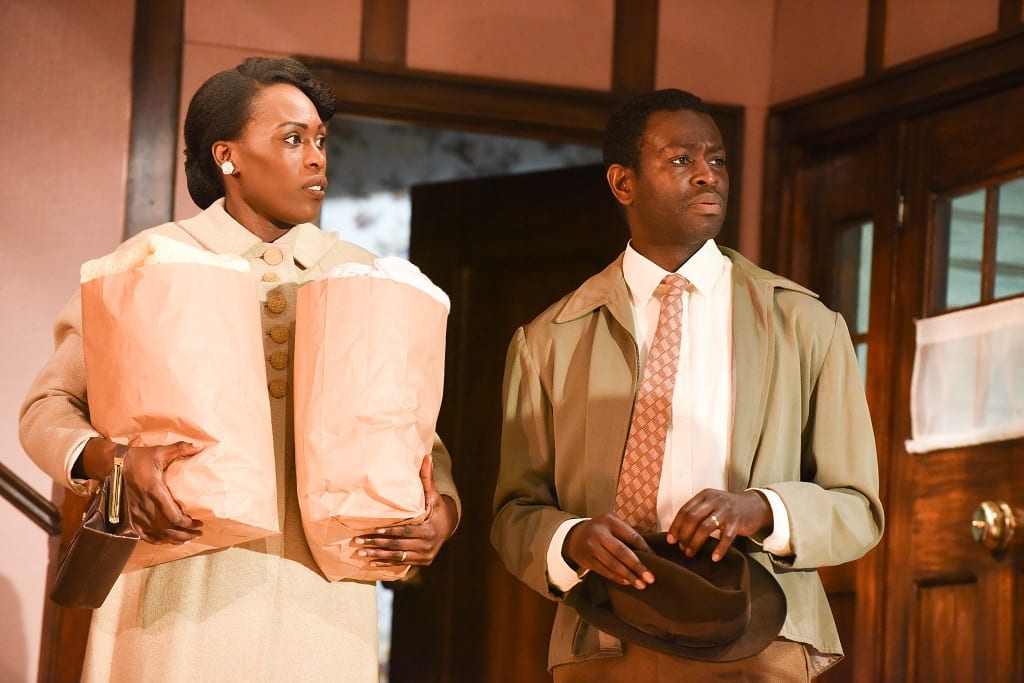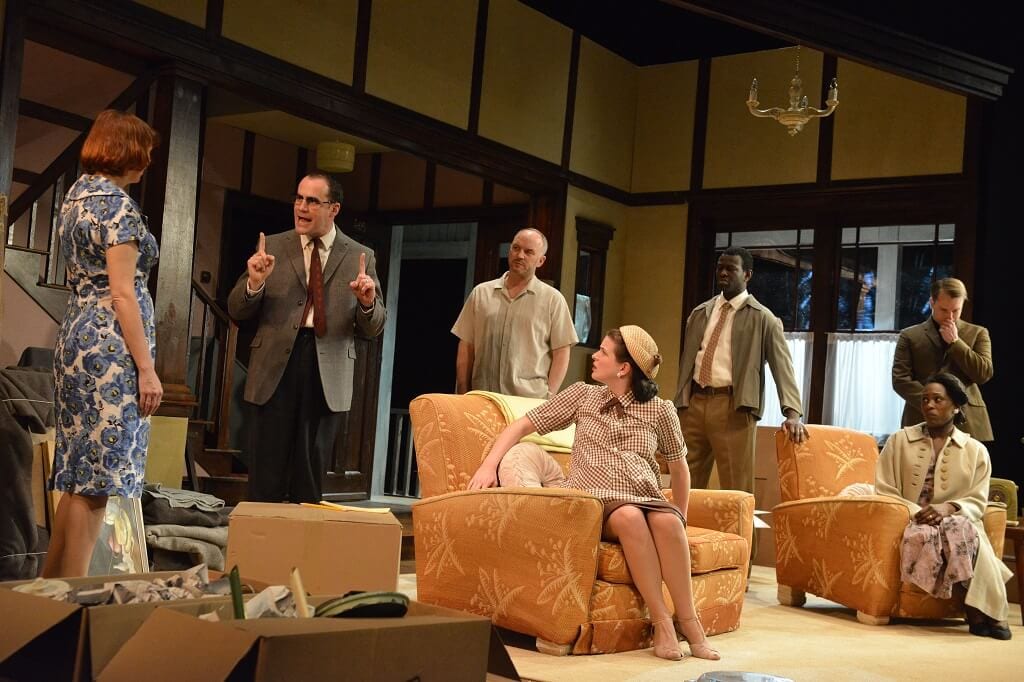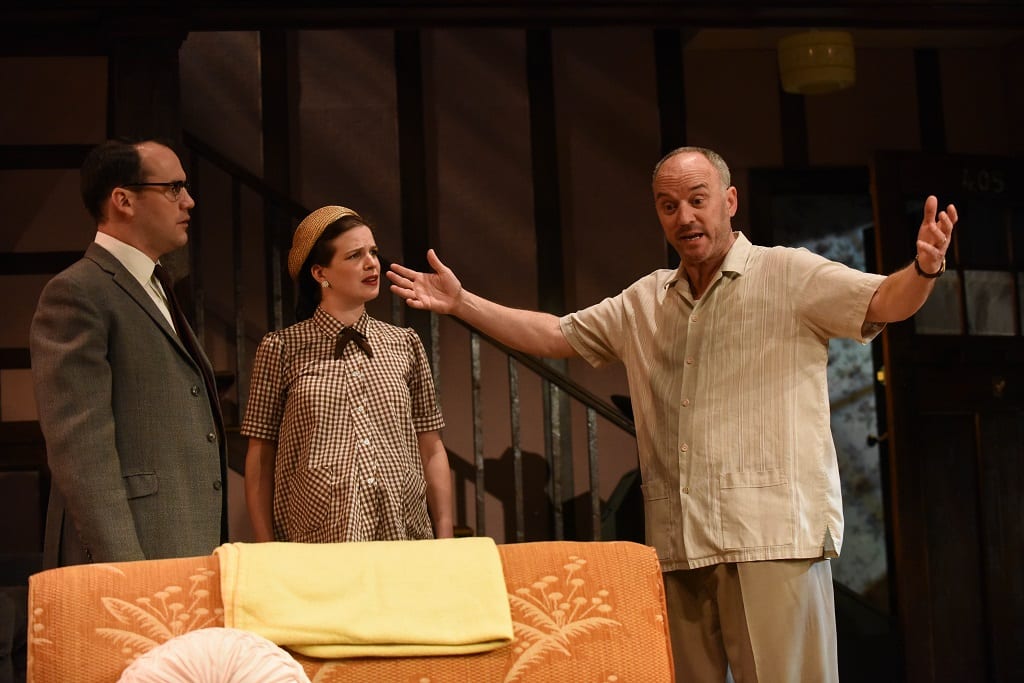After fifteen minutes of this play I was thinking that it was a bit like an old US TV sitcom but with worse jokes – an extended and unfunny riff on the derivation of “Neapolitan”, for example. Then the mood shifts and by the end of the first act I was hooked. It is a brilliant play about racism and neighbourhood and the impact of economic change on the assumptions on which people base their lifestyles. In this excellent production from Colchester’s Mercury Theatre, a group of terrific actors blend together brilliantly to conjure up two groups of Chicago residents – the two acts are set fifty years apart – coping with the strains of urban decay and renewal. Bruce Norris, who wrote the play, is an actor and writer closely associated with the Steppenwolf Company of Chicago
Both acts are set in the same house in the Clybourne Park neighbourhood of Chicago. In the first act, set shortly after the end of the Korean War, a white couple are about to sell their house to a black couple and we come to realise that they will be the first “outsiders” to move into a stable white community. In the second act, set some fifty years later, a white couple want to buy the property, knock it down and build a much larger house. It becomes clear that this is the first phase of “gentrification” as this inner city black neighbourhood becomes the target of wealthier white folk who want to live closer to their city centre workplaces.
In both situations, the underlying prejudices of all the characters are examined and often ridiculed – “where are the ski-ing negroes?” moans Karl, the excellent Ben Deery, as he tries to explain why he thinks it would be a cultural mismatch for blacks to start moving into his community. Later Rebecca Oldfield playing the female half of the incoming white couple comes up with “half my friends are black” and the press night audience howled with laughter. There are no bad performances from the cast of nine – and a couple are very fine indeed. Rebecca Manley, as the female member of the selling couple in the first act, brilliantly portrays a brittle, almost hysterical humour that we eventually realise is her way of fending off her grief about the death of her soldier son. And the wonderful Rebecca Oldfield plays the deaf wife of Karl in the first act and the right-on wife of the incoming couple in the second act. But this is essentially an ensemble piece and the fizzing speed of the dialogue is one of the play’s major strengths and a feather in director Geraldine Alexander’s cap.
The most important thing to say is that this play is extremely funny. But what takes it to a level beyond that of the clever comedy is that it focuses on dilemmas of race and racism that are as relevant in the UK today as in mid-fifties USA and illuminates them in a complex and thought-provoking way. Top quality drama, performed brilliantly.



